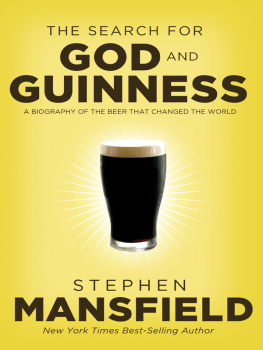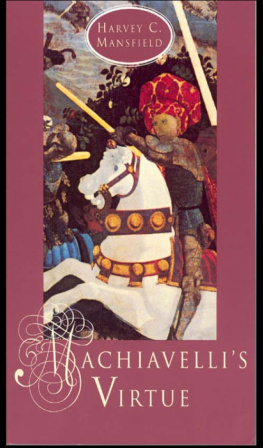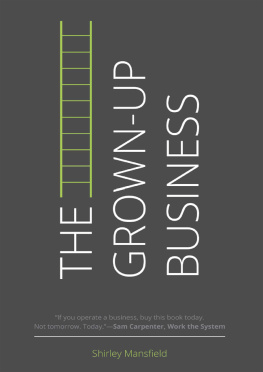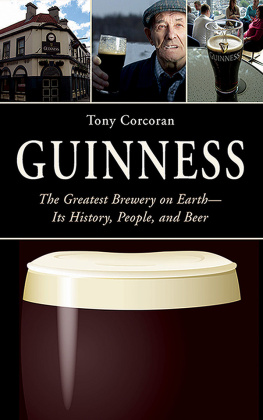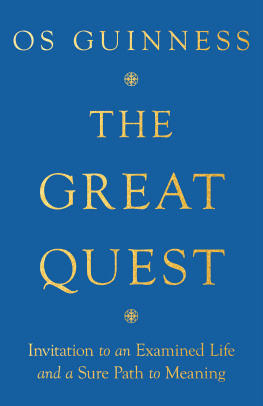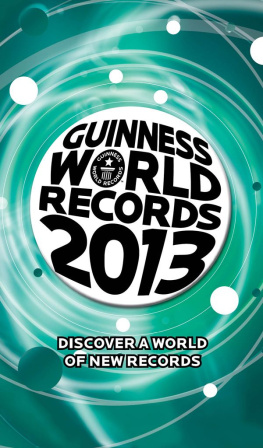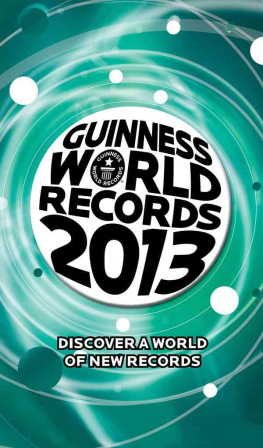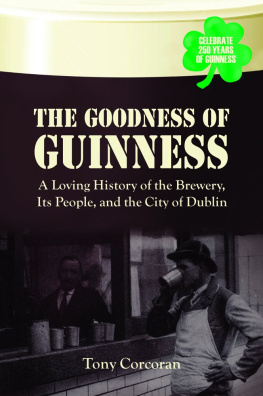THE SEARCH FOR
GOD AND
GUINNESS
A BIOGRAPHY OF THE BEER
THAT CHANGED THE WORLD
STEPHEN MANSFIELD

2009 by Stephen Mansfield
All rights reserved. No portion of this book may be reproduced, stored in a retrieval system, or transmitted in any form or by any meanselectronic, mechanical, photocopy, recording, scanning, or otherexcept for brief quotations in critical reviews or articles, without the prior written permission of the publisher.
Published in Nashville, Tennessee, by Thomas Nelson. Thomas Nelson is a registered trademark of Thomas Nelson, Inc.
Thomas Nelson, Inc., titles may be purchased in bulk for educational, business, fund-raising, or sales promotional use. For information, please e-mail SpecialMarkets@ThomasNelson.com.
ISBN: 978-1-59555-269-3
Printed in the United States of America
09 10 11 12 13 QW 7 6 5 4 3 2 1
To Brian Wade:
Semper Fidelis
ALSO BY STEPHEN MANSFIELD:
Never Give In:
The Extraordinary Character of Winston Churchill
Then Darkness Fled:
The Liberating Wisdom of Booker T. Washington
Forgotten Founding Father:
The Heroic Legacy of George Whitefield
The Faith of George W. Bush
The Faith of the American Soldier
Benedict XVI: His Life and Mission
The Faith of Barack Obama
TABLE OF CONTENTS

I was sitting on a bench outside the Guinness Archives at the St. Jamess Gate Brewery in Dublin when I heard the question. It came from a blonde American teenager who sat with her boyfriend on the bench next to me.
So, like, what does Guinness do? she asked as the two conversed.
It was hard not to laugh. After all, at that very moment we were seated inside of a seven-story structure shaped like a glass of beer.
Still, the boyfriend was patient. Well, baby, he said gently, trying to drain every sarcastic tone out of his voice, they make beer. Lots of it. And they are known for it all over the world. You could tell he had answered questions like this before.
But all kinds of people make beer, the blonde replied, her voice a slightly grating whine. Whats so big about this beer?
Now at a loss, the boyfriend looked at me. Since I had an appointment at the Archives, I was wearing a sport coat and had a briefcase and must have looked like I could help. Besides, I was twice their age and for all they knew I worked for Guinness.
Turning to me with a pleading expression, the boyfriend said, Sir, can you tell my girlfriend why Guinness is so famous?
Now, I confess that my first impulse was to say, No, and I doubt anyone could. But I knew this was just the irritation of the moment and, what is more, I remembered something I had just discussed with friends the night before: the Guinness story is largely unknown in the United States. Most of the books on the subject arent available there and the story of the dark stout usually takes a back seat to the rise of American brewing empires like Busch and Coors. I realized these kids could hardly be blamed for not knowing the Guinness tale. So I gentled up.
Yes, I can, I replied, and then I launched into a brief, informal survey of Arthur Guinness, his descendants, and the amazing thing that Guinness has become. But I kept the focus on the beer, and this, I quickly realized, was a mistake.
The two listened politely and then mumbled their thanks as they turned away. I knew I had not captured them. Refusing to let go of an audience, though, I said, But what I think is really cool is how the Guinnesses used their wealth to help so many people. The couple immediately shifted back in my direction and said, What do you mean?
It was the kind of moment that a lover of the past lives for: two eager young faces and an interesting tale to tell. So I gave it my all. I told them how the Guinnesses were people of faith and how this faith moved them to do good in society. I recounted the deeds of Arthur Guinnessthe righteous use of wealth and the Sunday schools and the antidueling association and his stand against extravagant living. I spoke also of the later generations and the high wages they paid their workers and the restoration of Irelands historic landmarks and the huge gifts to build housing for the poor.
I was on a roll and the girl gestured to some of her friends who then turned off iPods and leaned in to hear. I could have kissed her.
Then I told them more of what I will tell you in this book, how a Guinness doctor surveyed the desperate needs of his day and asked the Guinness board to let him help. And I told them how one of the Guinness heirs took his new bride and moved into the slums to call attention to the blight of poverty in his land. And I told them how nothing they have read about Microsoft or Google compares with the way an Irish beer company cared for people when their grandparents were still young.
What a moment it was, with half a dozen American kids listening closely and nothing else in the world seeming to matter for those few minutes at St. Jamess Gate.
When I finished, the blonde girl stood up, her boyfriend in tow. Well, then, lets go, she ordered. I chuckled a bit and, gently mocking her intensity, I asked, So where are you going? She half turned in my direction but spoke mainly to her friends as she said, These people did something. Then, jabbing her finger fiercely toward the floor, she finished, And I want to learn all about it.
Now, I am unbelievably sentimental about the young and I could not let this go. Yeah, I said, go learn about them and then do something even bigger of your own.
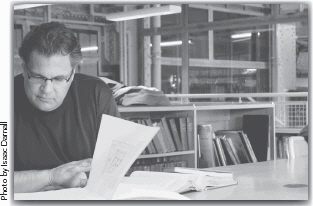
Author in the Guinness storehouse archive room
I thought they might laugh me off, but I saw in their eyes a spark of gratitude that I thought they could have such possibilities in them. Thank you, one of them said, and then I watched them drift into the next room, with all the flip-flops and bare midriffs and tattoos and piercings that mark their tribe.
And they seemed wonderful to me.
Just then, Eibhlin Roche, the Guinness archivist, stepped through her door: Mr. Mansfield, are you ready to begin?
Man, was I ever.

T his book was conceived in a myth, inspired by a weariness, and commissioned by a hope. First, the myth.
It was a warm September Sunday morning when I joined a friend at his Presbyterian church and watched a black-robed minister mount his pulpit to begin the lesson for the day. What followed was a fine sermon, evidence both of the pastors great learning and of his love for the people before him. Then, as he leaned into his conclusion, the pastor told a story. It was the tale of Arthur Guinness, founder of the famous brewing family, and of how in the mid-1700s he had walked the streets of Dublin pleading with God to do something about the drunkenness on the streets of Ireland. It seems that whiskey and gin were the rage in his day and the resulting devastation to his nation was more than young Arthur could stand. It was then, as he held this scourge of alcohol aloft in prayer, that Arthur heard his God speak:
Next page
